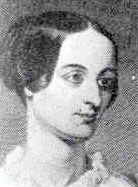Издателство |
| :. Издателство
LiterNet |
Медии |
| :. Електронно списание LiterNet |
| :. Електронно списание БЕЛ |
| :. Културни
новини |
Каталози |
| :. По
дати : Март |
| :. Електронни книги |
| :. Раздели / Рубрики |
| :. Автори |
| :. Критика за авторите |
Книжарници |
| :. Книжен
пазар |
| :. Книгосвят: сравни цени |
Ресурси |
| :. Каталог за култура |
| :. Артзона |
| :. Писмена реч |
За
нас |
| :. Всичко за LiterNet |
MARGARET FULLER
(1810-1850)
 America's first true feminist, Margaret Fuller holds a distinctive place in the cultural life of the American Renaissance. Transcendentalist, literary critic, editor, journalist, teacher,and political activist, ultimately turned revolutionary, she numbered among her close friends the intellectual prime movers of the day: Emerson, Thoreau, the Peabody sisters, the Alcotts, Horace Greeley, Carlyle, and Mazzini - all of whom regarded her with admiration and sometimes even awe.
America's first true feminist, Margaret Fuller holds a distinctive place in the cultural life of the American Renaissance. Transcendentalist, literary critic, editor, journalist, teacher,and political activist, ultimately turned revolutionary, she numbered among her close friends the intellectual prime movers of the day: Emerson, Thoreau, the Peabody sisters, the Alcotts, Horace Greeley, Carlyle, and Mazzini - all of whom regarded her with admiration and sometimes even awe.
Born in Cambridgeport, MA, on May 23, 1810, Fuller received an intellectually rigorous classical education, whose boundaries she challenged when she won admittance for herself to the male-only halls of Harvard's Library, where she continued her reading, research, and study of languages (she was especially fond of French and German Romantic literature and an able scholar of German, French, Italian, Greek, and Latin.) After a period of teaching and attending to family concerns in Groton, CT, Fuller set about to carve for herself a niche in the Transcendentalist community. Invited by Emerson to visit him in Concord in 1836, it was not long before she had made captive to her conversation not only Emerson and Lidian, and their circle, but also the Alcotts. Her introduction to Bronson Alcott proved fortuitous; the idealistic educator invited her to replace Elizabeth Peabody at his innovative Temple School in Boston, which Margaret did in December of that year.
Her shocked friends mourned her lavishly. Of the numerous tributes received, the reminiscence by her fellow journalist Charles T. Congdon is one of the most touching:
"In American literature she will remain a remarkable biographic phenomenon, while the tragic death of this Lycidas of women, a most painful personal story of shipwreck, was intensified by so many melancholy incidents that whoever, long years hence, may read them, will wonder how the gods could have been so pitiless, and why the life of new happiness and larger intellectual achievement which was before her should so suddenly have ended upon that savage and inhospitable shore."
=============================
© E-publisher LiterNet, 01.04.2009
The Sun Is but a Morning Star. Anthology of American Literature. Edited by
Albena Bakratcheva. Varna: LiterNet, 2008-2010.
